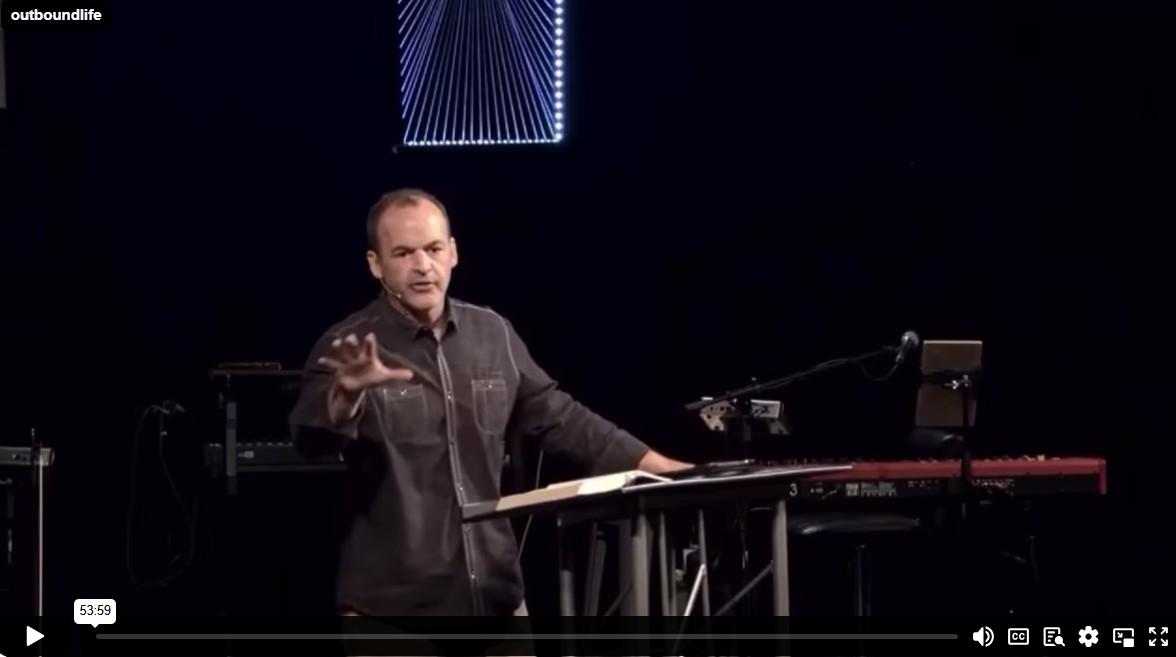Imagine, if you will, being in a situation where everything around you is in a desperate state of emergency.
The thoughts that are feeding off all your sensory input is, “get me out of here, now!” Through a traumatic chain of events you find yourself deeply desiring to board the life raft that will take you away from the destruction that attempted to extinguish all life. The raft moves further and further from the refuge as you sit reflecting on the events that had previously unfolded. Overwhelmed, exhausted, grieved . . . and relieved. Yet, as time progresses the previous danger is gone, but now you are floating in a vast ocean. No shore can be seen, nor does it appear that anyone even knows where you are located. A day goes by, then two. After a week, the rations are running low and fear begins to set in. Without help, the situation begins to look dire. Again, desperate.
A Pattern
Is the pattern becoming familiar? This is how the Christian life is often depicted as a constant pattern of saved from, saved from, saved from, but never arriving to any real solid place of freedom until we die. No wonder God gets such a bad rap, accused of being the Sovereign chess master that holds everyone to just a little taste of relief. Only to repeat again so He can keep his creation always needing Him and His ego constantly feeding on the suffering cries of those awaiting His rescue.
That may have sounded a little dramatic, but think about what has been communicated about our situations (and don’t forget poor old Job). Ponder the irony for one moment. If God needs us in a mess so that we will always need him, then heaven will be a place where we no longer need or want God. Think about that logic, our problems bring us to God for relief and our rest, but “freedom” causes us to turn from God. Then why would heaven be a place absent from all evil. If it were absent from all evil, we would no longer serve God because we need problems to teach us that we need God. That hurts my head thinking about it.
Grace
Many may say that they don’t really believe that and it is not quite like that. Then let me bring up the big five letter word that we use to introduce people to Jesus, but we stop using after they accept the gift. The word is Grace. Wonderful when talking to someone who has never had a relationship with Jesus Christ, but don’t let them live from this place.
It is important to help people get out of the ship that is sinking and into the life boat called salvation. We may, however, not want to take them right away to the land that they inherited, because they may not know how to handle themselves in that place. Maybe we have discovered something here. Perhaps the problem is not God. Rather, it is another force entirely that wants to prevent us from discovering that we are no longer slaves. A people that are subjected and ruled by a fallen kingdom that wants to keep us in a perpetual state of slavery and any little glimpse of hope is to be dashed, creating a hardening of heart. A bitterness, if you will, towards any reality of freedom. Grace came in and did more than deliver us from the old world. It actually transferred us into a new kingdom with all the rights and privileges of kings and priests. No longer mastered, but masters. An event, that even though undeserved, radically alters who we really are.
A Delivered People
The children of Israel faced this in Egypt as slaves, until they cried out to invite God in to help. God came immediately, not necessarily from the pain of the cry, but at the long awaited invitation of the heart. He did not use the life boats that were attached to the previous kingdom. Rather, they received the response of a loving God that took all measures to free his beloved from a position of slave in a foreign world, TO a land of rest that was already prepared for them. They were being delivered to the rest of the promise. Although, they could only comprehend themselves as slaves wanting to be delivered from the pain.
This is the reason that the 11 day journey becoming 40 years and why it was the children of Israel’s fear, not God’s sovereignty that slowed the process (Exodus 13:17). It took a generation to understand that the world once called them slaves of Egypt, but now they were know as the Children of God. This picture of grace was not a location or circumstance change. It was not a behavior change. The core of the intended deliverance was an identity change that altered behavior, circumstances and location. This is the salvation and redemption that was shadowed in this story as the intended objective of our loving Father.
Reflection
The crucifixion and resurrection mirrors the same truth. Not just a relief from the weight of sin and barely being dragged in to the gates heaven. Nor, was it to be a weekly visit to the altar to deal with the sins of the week. Hoping not to forget one in case you are hit by a bus on the way home. (Note: Israel under the sacrificial system only had to do that once a year.) The reality of the true salvation or deliverance was an identity change as sons and daughters of God. Free from sin with a new nature and a new heart.
No longer on a mission to become a better person, but living the journey from what you have now become. Not wandering around wishing you could have what God had promised and accepting life as a pattern of defeat to defeat. Rather, the salvation we have been graced with was intended to bring us into a confident expectation of victory. It brings us into our rest from which we are to reign, the promise of our deliverance. This grace is what finally breaks the cycle of needing to be delivered from. It reveals what we have been delivered to.
Blog “The Power of a Reference Point – Part 1”
Podcast “In Search of Hope and Finding Courage”



